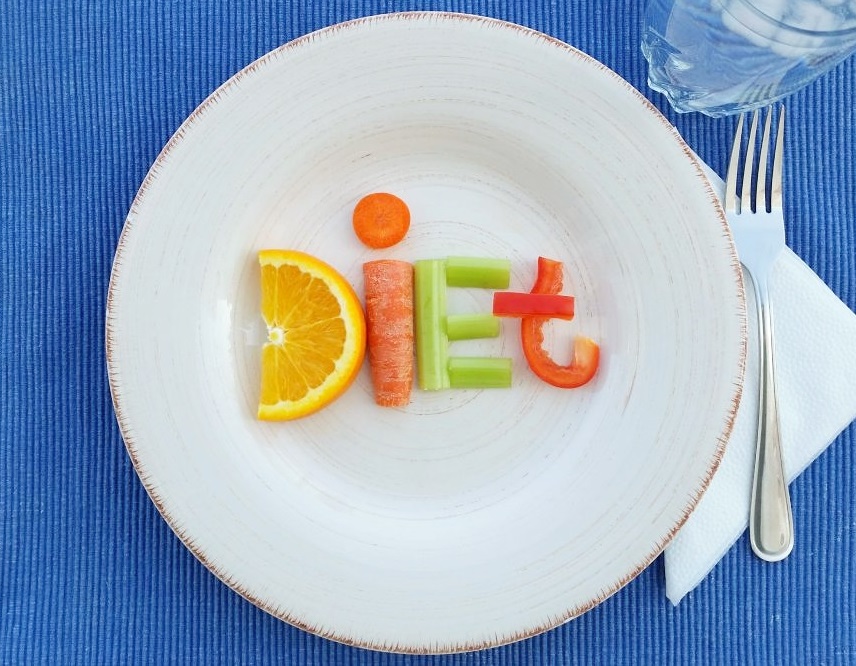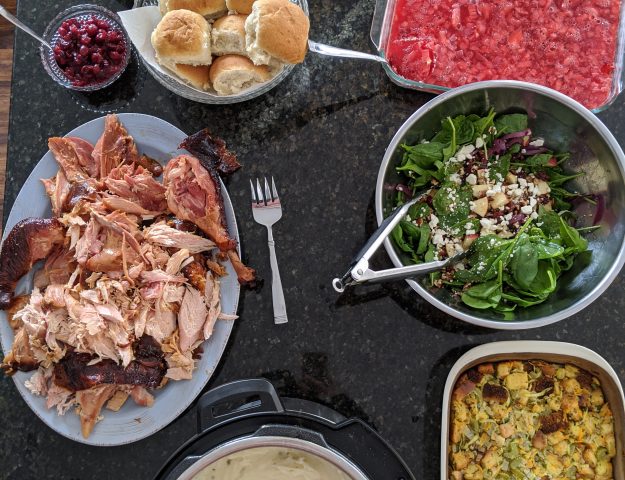Questions to Ask Before Starting a Diet

‘Tis the season of New Year’s resolutions. Whether that phrase gives you anxiety or invigoration, we just can’t avoid all the diet and exercise fodder that surrounds the New Year. Anyone who knows me or who has read my blog knows I am not a proponent of fad dieting. Instead, I advocate for eating a balanced diet made up of mostly plants and whole grains with reasonable portions of animal products and treats. I strongly believe there is room for every food in your diet!
That being said, I like the attention we give to our health through New Year’s Resolutions each year. What I don’t like is all the phony information out there about dieting. Many diets being advertised are not sustainable and may even pose a danger to your health. The diet industry is one of THE most lucrative industries in the United States. According to Marketdata Enterprises, Americans as a whole spend over $60 billion a year to lose weight. Diet companies play on consumers’ emotions to get them to buy diet books, packaged foods, supplements, powders, teas, gym memberships and more.
The craziest irony of dieting is that if it doesn’t work for the consumer, the blame is on the dieter and not the diet company. How does that make sense?! If your smartphone spontaneously combusted in your hand, you would never put the blame on yourself, but instead you would march right into the phone company and demand an explanation. Unfortunately, it’s our culture. If we don’t lose the desired weight we say to ourselves, “Well if only I was more disciplined…. “ or “If I would have stuck to it longer….” or “If I just had more self-control…” Isn’t it possible that the diet failed you and not that you failed the diet?
How can you filter through all the smoke of Fad Diets and find the best healthy-eating plan that suits your needs? Take a moment to step back from all the information that’s bombarding you, and analyze your prospective diet with the following questions:
1. Does the diet over-emphasize and/or eliminate food groups?
Here’s the honest truth: almost every diet out there requires you to cut out carbs and sugar. Want to know why? Because you lose weight doing it—at first. Yes, you actually do lose weight when you eliminate carbohydrates like breads, rice, cereals and sweets. But after even just one month of restricting carbohydrates, your body will begin to go into starvation mode and liberate sugar stores from your liver and muscles. Then, your brain tells your digestive system to hold on to as much sugar as possible, often in the form of fat, so in the event of another phase of starvation, your body will have stores for later. Starvation mode will actually make you gain more weight. It is a vicious cycle where the more you diet, the harder it will become to lose weight. Read more about this phenomenon in my article about Low Carb Diets.
2. Does the diet call for temporary changes?
A crazy thought we let ourselves have is that if we can just get our weight under control, then we can go back to eating the way we were before. It looks very appealing to do a diet guaranteed to work after just 6-8 weeks. But what happens when the diet is over? You are left to maintain the weight loss by returning to old habits, and most of the time you gain back all, if not more weight than what was originally lost. And then…you blame yourself, of course.
3. Does the diet require the purchase of specialty foods and beverages through the diet company?
The fastest way for a diet company to make money, is to require you to purchase their carefully portioned meal-replacement bars, protein shakes, freezer meals, supplements, or a slew of other products as part of the diet plan. Not only are you boxed in to eating specific foods, you are also financially tied to purchasing expensive food products for the rest of your life. Because, if you choose to stop buying the foods, and your diet fails…the blame is on you again.
4. Does the diet discourage you from exercising during part or all of the duration of the diet?
Most diets which discourage exercise have an underlying reason for doing so. During a particular phase of the diet, calories from food are so restricted that the dieter will have NO ENERGY for exercising. You will feel too weak to strap on your running shoes, therefore, they discourage you from doing it. Ask yourself, “Does it really make sense that eating this way will give me LESS ENERGY?”
5. Does the diet encourage you to eat whatever and in as much portions as you want so long as you combine it with their special pill or supplement?
Please don’t fall for this one. This is the most dangerous diet method out there. Here is truth: a person can rarely overdose on vitamins and minerals if they are getting them from food sources. But you bet your bottom dollar that you CAN overdose on vitamins and minerals through supplements or pills.
In the 1990’s, a pill called Fen-Phen was available to dieters. It worked really well because it is an anoretic which suppresses the appetite, making a person not feel hungry. Fen-Phen also contains a derivative of the stimulant Methamphetamine which speeds up a person’s metabolism, giving them an “up” feeling. As we know, stimulants are addictive, and many of the Fen-Phen users developed dangerous addictions that led to using Meth, an illegal drug that destroys the body. Fen-Phen was taken off the shelves after many deaths and cardiovascular events related to heart failure were experienced by users. Sadly, it took about 15 years to get the stuff completely off the shelves.
Because of the way labeling laws are in America, there could be other pills available for sale right now which also have dangerous side-effects. Unfortunately, many men and women desperate to lose unwanted pounds turn to pills or supplements not regulated by the FDA. They either find themselves in an out-of-control addiction or with a dangerous toxicity from a supplement that was poorly dosed. Please, please, PLEASE, don’t let yourself fall for taking any pill or supplement without asking a medical doctor or registered dietitian about it first!
Here are two more questions stemming from scripture which I like my friends and family to consider before starting a diet.
1. Are you using “judgment” and not “excess” when caring for your body?
In a book of scripture called the Doctrine and Covenants, it says:
“Yea, all things which come of the earth, in the season thereof, are made for the benefit and the use of man, both to please the eye and to gladden the heart;
Yea, for food and for raiment, for taste and for smell, to strengthen the body and to enliven the soul.
And it pleaseth God that he hath given all these things unto man; for unto this end were they made to be used, with judgment, not to excess, neither by extortion.” D&C 59:18-20
2. Do you plan to continue this way of eating/exercising for life?
In the Book of Mormon it reads:
“I would that ye would be diligent and temperate in all things.” Alma 38:10
Also in Doctrine and Covenants, the Lord Promises us the following:
“And all saints who remember to keep and do these sayings, walking in obedience to the commandments, shall receive health in their navel and marrow to their bones;
And shall find wisdom and great treasures of knowledge, even hidden treasures;
And shall run and not be weary, and shall walk and not faint.
And I, the Lord, give unto them a promise, that the destroying angel shall pass by them, as the children of Israel, and not slay them.” D&C 89:18-20
This year, instead of starting a restrictive diet, I encourage you to set just two or three simple and positive goals for eating and/or exercising healthier this year. Some examples you could choose from are listed below:

I sincerely wish you the best as you navigate the Fad Diet Season. Happy New Year.
Featured Product
(Includes Affiliate Link)
Intuitive Eating




